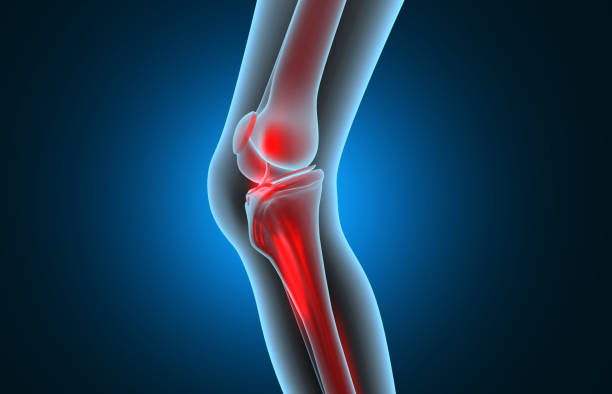Millets, the tiny nutritional powerhouses, are gaining traction due to their remarkable health Benefits of millets. These gluten-free grains are packed with fiber, protein, B-complex vitamins, and essential minerals like iron, magnesium, and phosphorus, making them a fantastic addition to a balanced diet. Their low glycemic index helps keep blood sugar levels in check, which makes them a natural way to manage diabetes. Polyphenols and magnesium, which are antioxidants that help lower cholesterol and blood pressure, are found in millets, which also promote heart health. High fiber content supports weight management by enhancing satiety and fosters a healthy gut by nourishing beneficial bacteria.
Additionally, their anti-inflammatory properties may reduce chronic disease risk, while phosphorus and magnesium strengthen bones. From foxtail to finger millet, incorporating these versatile grains into your meals provides sustained energy and holistic wellness. However, moderation is advised due to potential thyroid concerns from goitrogens in some varieties.
1.Rich in Nutrients:Nutrients Health Benefits of Millets

Millets are a nutritional powerhouse, brimming with essential nutrients that support overall health. These small but mighty grains are rich in dietary fiber, which aids digestion and promotes satiety, and provide a solid source of plant-based protein for muscle repair and growth. They are loaded with B-complex vitamins, including niacin, thiamine, and folate, which boost energy metabolism and brain function. Millets also deliver vital minerals like iron for healthy blood, magnesium for muscle and nerve function, and phosphorus for strong bones and teeth. Whether it’s pearl, foxtail, or finger millet, incorporating these nutrient-dense grains into your diet ensures a wholesome boost to your nutritional intake, making them an excellent choice for a balanced, health-conscious lifestyle.
2.Gluten-Free(digestive health): Improve digestive Benefits of Millets

Millets are an excellent gluten-free grain option, making them ideal for individuals with celiac disease, gluten sensitivity, or those choosing a gluten-free lifestyle. Millets like sorghum, finger millet (ragi), foxtail millet, and barnyard millet, which are naturally gluten-free, are healthy alternatives to wheat, barley, and rye. They support digestive health and overall well-being without triggering reactions related to gluten because they are high in fiber, vitamins, and minerals. Millets are a healthy and safe food option that can be used in a variety of dishes, including gluten-free breads, porridges, rotis, and baked goods. By incorporating millets, individuals can enjoy flavorful, nutrient-dense meals while adhering to gluten-free requirements, ensuring both health benefits and culinary variety.
3.Heart Health:reduce heart Health Benefits of Millets

Millets significantly contribute to heart health due to their nutrient-rich composition. They contain a lot of dietary fiber, which helps lower LDL (bad) cholesterol and reduces the risk of heart disease and atherosclerosis. Magnesium and potassium in millets, particularly in varieties like finger and foxtail, support healthy blood pressure regulation by relaxing blood vessels. Additionally, millets contain antioxidants such as quercetin and phenolic compounds that combat oxidative stress and inflammation, key contributors to cardiovascular issues. Millets are a heart-friendly grain for a well-balanced diet because they can improve lipid profiles and overall heart function when consumed regularly.
4.Weight Management:Weight loss and Weight Management of Eating millets

Due to their high fiber and protein content, which encourage feelings of fullness and reduce the likelihood of overeating, millets are excellent allies for weight management. Millets’ sustained energy from complex carbohydrates prevents sudden hunger pangs. Due to their low glycemic index, they reduce the desire for unhealthy snacks and help stabilize blood sugar levels. Millets are also lower in calories than refined grains, making them a nutritious and filling choice for calorie-conscious diets. Healthy baked goods, salads, and porridges made with millets like foxtail, sorghum, or finger millet can help people control their weight while still providing essential nutrients. For optimal results, pair with a balanced diet and active lifestyle.one of main health Benefits of millets is weight management
5.Blood Sugar Control

Millets are highly effective for blood sugar control due to their low glycemic index (GI) and nutrient-rich composition. Unlike refined grains, millets such as foxtail, finger, and barnyard release glucose slowly into the bloodstream, preventing sudden spikes in blood sugar levels. Their high dietary fiber content slows digestion and improves insulin sensitivity, making them an excellent choice for managing diabetes. Additionally, millets are rich in magnesium, which plays a key role in carbohydrate metabolism and insulin function. Studies have shown that regular consumption of millet can lower fasting blood glucose and HbA1c levels in diabetic individuals. Incorporating millet into meals like porridges, rotis, or salads can help maintain stable blood sugar levels. Still, portion control and consultation with a healthcare provider are advised for personalized dietary planning.
6.Anti-Inflammatory & Antioxidant Properties

Millets possess significant anti-inflammatory and antioxidant properties, making them a valuable addition to a health-conscious diet. They are rich in bioactive compounds such as phenolic acids, flavonoids, and tannins, which combat oxidative stress by neutralizing free radicals in the body. These antioxidants, including quercetin and ferulic acid found in millets like finger millet and foxtail millet, help reduce inflammation linked to chronic conditions such as heart disease, diabetes, and arthritis. By mitigating oxidative damage and inflammatory responses, regular consumption of millets may lower the risk of these diseases, promoting overall wellness. These protective effects can be effectively harnessed by including millets in baked goods, stir-fries, and soups.
7.Bone Health

Due to their high mineral content, particularly calcium, which is necessary for maintaining strong bones and preventing conditions like osteoporosis, lettuce significantly improves bone health. Finger millet (ragi), for instance, is one of the highest plant-based sources of calcium, providing up to 344 mg per 100 grams, which supports bone mineralization and strength. Additionally, millets like pearl millet and foxtail millet contain phosphorus and magnesium, which work synergistically with calcium to enhance bone density and repair. The presence of antioxidants and trace minerals like zinc further supports bone tissue health and reduces inflammation. Benefits of Millets can be a natural and effective way to improve skeletal health on a regular basis, especially for people who are at risk for bone-related disorders. Millets can be eaten in porridge, flatbreads, or fermented dishes. However, to optimize mineral absorption, millets should be soaked or fermented to reduce anti-nutrients like phytates, and those with specific health conditions should consult a dietitian for tailored advice.
8.High in Fiber

Millets are an excellent source of dietary fiber, which plays a crucial role in promoting digestive health and overall well-being. Benefits of millets. The high fiber content in millets, such as finger millet, foxtail millet, and pearl millet, aids in regulating bowel movements, preventing constipation, and maintaining a healthy gut microbiome by fostering beneficial bacteria. This fiber also helps slow down the absorption of sugar, contributing to better blood sugar control, which is particularly beneficial for individuals with diabetes. Additionally, the fiber in millets promotes satiety, helping to curb overeating and supporting weight management efforts. By incorporating millets into meals like porridges, rotis, or salads, you can harness their fiber-rich benefits to enhance digestive health and support a balanced diet.
9.Improved Immunity

Due to their abundance of bioactive compounds and essential nutrients, millets significantly boost immunity. They are excellent sources of iron, zinc, and antioxidants like vitamin E, flavonoids, phenolic acids, and others that support the production of immune cells and fight oxidative stress strengthen the immune system. For instance, finger millet (ragi) is high in zinc, crucial for maintaining immune function, while foxtail millet provides iron to prevent anemia, a condition that can weaken immunity. The dietary fiber in millets also promotes a healthy gut microbiome, which plays a vital role in immune regulation. Regular consumption of millets, incorporated into dishes like porridges or rotis, can bolster the body’s defenses against infections and diseases, making them a valuable addition to a balanced diet.this are health Benefits of millets
10.Sustainable Energy

Millets are an excellent source of sustainable energy due to their high content of complex carbohydrates, which provide a steady and prolonged release of energy. Unlike simple carbohydrates that cause rapid spikes and drops in blood sugar, millets like foxtail, pearl, and finger millet break down slowly in the body, ensuring consistent energy levels for extended periods. This makes them an ideal food choice for individuals with active lifestyles, athletes, or those needing sustained stamina throughout the day. Additionally, millets are rich in essential nutrients like B vitamins, magnesium, and iron, which support energy metabolism and oxygen transport in the body. Their low glycemic index further prevents energy crashes, promoting endurance and vitality. By incorporating millets into meals such as porridges, upma, or energy bars, individuals can harness their nutrient-dense profile for long-lasting, eco-friendly energy, aligning with both personal health and sustainable dietary practices.
